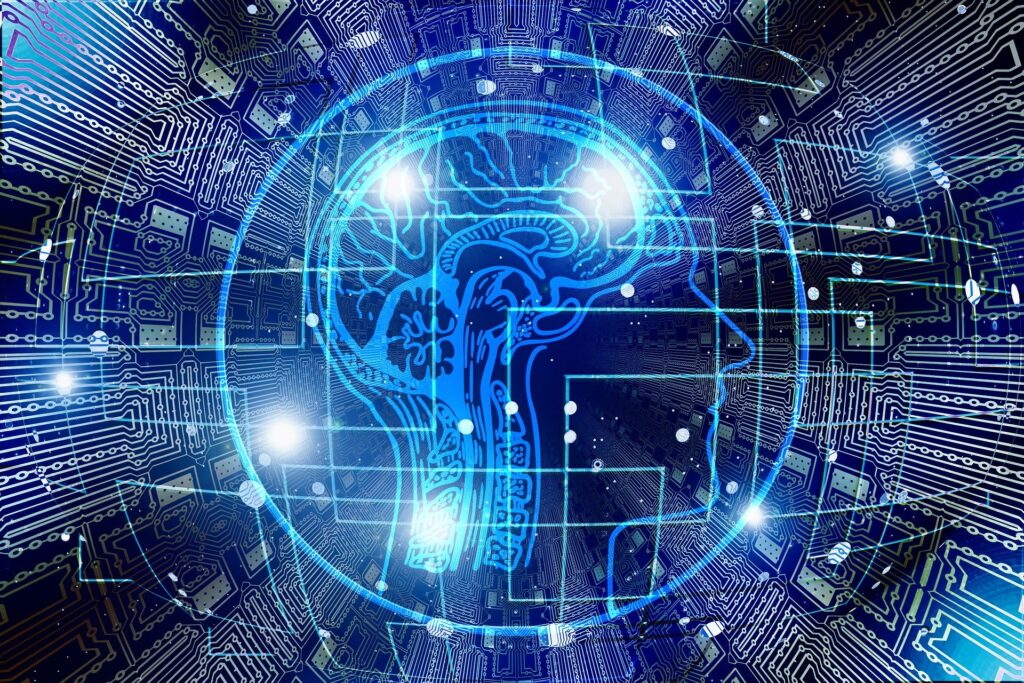When it comes to the customer experience, businesses are quickly realizing that you can’t put a price on personalization. Gone are the days when a one-size-fits-all approach will suffice; customers today demand and expect a more tailored experience that reflects their unique needs and preferences which is why artificial intelligence comes into the picture.
Fortunately, with the help of artificial intelligence (AI), businesses now have the ability to deliver on this demand. AI platforms are able to provide a more detailed understanding of customers by extracting insights from data at scale. This allows businesses to create a more customized experience for each individual customer, increasing the chance that they will convert. In addition, AI can also help to automate certain tasks within the marketing department, such as lead scoring and nurturing, allowing marketing teams to focus on higher-value activities.
In this blog, we are going to discuss the concept of artificial intelligence, its usefulness in digital marketing, how it works, then the advantages and disadvantages of AI in general.
What Is Artificial Intelligence For Digital Marketing
Artificial intelligence (AI) is the simulation of human intelligence in machines that are programmed to think like humans and mimic their actions. The concept was first introduced in the 1950s, and since then science has advanced and grown more sophisticated and efficient.
The most widely accepted definition of AI is “the simulation of human intelligence in machines that are programmed to think like humans and mimic their actions”. In addition, AI systems are applied to a range of different functions, including natural language processing (NLP), machine learning (ML), and computer vision (CV).
In digital marketing, AI can be used for a number of different tasks as the term may also be applied to any machine that exhibits traits associated with a human mind such as learning and problem-solving.
AI Marketing
The key element of AI is that it “learns” from data and experiences, which allows it to adapt, make predictions, and even learn from past experiences.
AI applications can be classified into two types: “intelligent tutoring” and “intelligent personalization”. Intelligent tutoring refers to a computer program based on artificial intelligence that is designed to help people learn a specific skill. This is used for example when a student needs help on a specific subject. While Intelligent personalization is used for marketing, where AI is taught to understand the customer and deliver a relevant, personalized message to each customer. It is an element of modern marketing and is often attributed to the success of the Amazon.com website, which is able to deliver a personalized, relevant message to each customer.
How It Works – Artificial Intelligence
AI marketing uses artificial intelligence technologies to make automated decisions based on data collection, data analysis, and additional observations of audience or economic trends that may impact marketing efforts. In AI marketing efforts speed is essential. These tools use data and customer profiles to learn how to best communicate with customers, then serve them tailored messages at the right time without intervention from marketing team members, ensuring maximum efficiency.
In this sense, AI marketing is capable of monitoring, analyzing, and acting on all relevant data from different sources, which can be used to better understand customer needs, preferences, and behaviors at any point in time.
These insights are then used to create more targeted messages that will resonate with customers and help businesses drive more conversions.
The main benefits of AI marketing are the speed and efficiency that it provides. AI tools can research, analyze, and respond to data in real-time, which helps businesses to gain a competitive advantage by creating a better customer experience and increasing the efficiency of their marketing efforts.
Use Of Artificial Intelligence In Digital Marketing
If you’re just beginning to explore your options with the use of artificial intelligence and don’t want to commit to employing a full team of web developers to drastically change your website, you can choose an AI-powered tool to get the job done.
With a variety of tools emerging, the list of the best tools for artificial intelligence is vast, so we will focus on the top six (6) AI tools you can use to grow your business.
The tools below are all designed to provide a useful service that can be used to build websites, but they differ in their ability to provide a complete solution. Click through to each tool’s description to learn more about its features and advantages.

1. Coremetrics – Market Intelligence Solutions
Coremetrics is an AI-powered platform that helps marketers make data-driven decisions and its tools are specifically designed to help businesses measure, manage, and improve their digital marketing programs. The platform offers a variety of solutions, including competitor research, competitor intelligence, report generation, and website optimization.
2. Google Analytics – Analytics Solutions
Google Analytics is the world’s most popular web analytics tool. Google’s AI platform was initially launched in 2011 as Google Analytics 360 to provide businesses with more insights into customer behavior. The platform uses machine learning to provide a wealth of insights into the customer experience, allowing marketers to create more personalized messages that resonate with customers.
3. Moltin – Marketing Automation Solutions
Moltin is an AI-powered marketing automation tool for small and medium-sized businesses. It is designed to help marketers create personalized messages that are relevant and helpful to customers. Moltin also allows marketers to produce tailored content, such as emails, newsletters, and landing pages.
4. LeadScore – Lead Management Solutions
LeadScore is an AI-powered lead management platform for small and medium-sized businesses. The platform helps marketers create more personalized messages and nurture leads at the right time. As a lead management tool, LeadScore provides a variety of tools, including lead scoring, lead nurturing, and lead nurturing automation.
5. Tagify – Website Optimization Solutions
Tagify is an AI-powered website optimization tool that helps businesses increase conversions by improving their website’s SEO. It helps marketers analyze, optimize, and measure the performance of their websites. It is also capable of automatically generating website content and providing recommendations and suggestions to improve website performance.
6. Xero – Accounting Solutions
Xero is a cloud-based accounting software that incorporates AI to help businesses manage their finances. Xero’s AI tools also help businesses manage their accounts and make better decisions.
Advantage Of Artificial Intelligence In marketing
1. It makes marketing much easier and faster.
AI tools allow marketers to quickly gather data and insights from multiple sources and are capable of delivering real-time responses to help businesses meet customer expectations.
2. Marketers can quickly find the information they need in order to make marketing decisions
Marketers can quickly analyze data and get valuable insights that can be used to improve their marketing campaigns just by using AI tools.
3. AI allows marketers to create relevant, personalized messages that are more likely to resonate with customers
In addition to helping businesses increase conversions, AI marketing tools can also help marketers create more personalized messages and deliver relevant content to customers.
4. Marketers can save time and money by using AI to automate repetitive tasks
AI marketing tools can save businesses time and money by using AI to automate repetitive tasks such as analyzing data, creating reports, and providing recommendations.
5. Marketers can be more creative and innovative with the use of AI.
AI tools can help marketers think creatively and experiment with ideas in order to develop new and innovative marketing campaigns.
6. AI marketing tools are versatile and can be used for a wide variety of marketing campaigns.
They work for verities of purposes, including website optimization, lead generation, customer service, email marketing, and more.
Disadvantage Of Artificial Intelligence In marketing
1. There will be fewer jobs for human beings as artificial intelligence is likely to take over in the future.
2. Marketers may not be able to work with ai.
It’s possible that as AI tools become more advanced, they will develop intelligence that is superior to that of humans, making humans unable to work with the tool.
3. The use of AI marketing tools may result in a lack of knowledge and skills.
As AI tools become more advanced, people become too dependent on them, which results in decrees in skills and knowledge.
4. It is expensive to maintain.
5. It is still in its early stage.
Conclusion
AI in marketing is the latest trend in today’s digital world and the earlier business brands, marketers and personal brands start incorporating it into their business the better they will be positioned.
Artificial intelligence is changing the way brands work, and the way they interact with customers. As it is an emerging technology, brands and marketers are investing in the best AI tools to help them get the most from their efforts. Make good use of this opportunity while it’s still hot. For more inquiries contact us or leave them in the comment section and don’t forget to subscribe for more useful posts like this.

